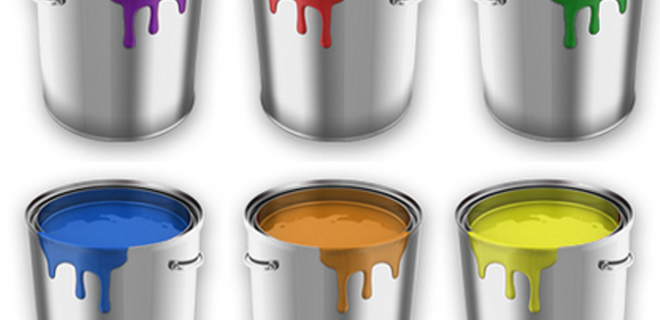Every year in the United States, 64 million gallons of paint are thrown out, according to the United States Environmental Protection Agency. That’s enough to paint 16 solid highway stripes from the earth to the moon. Some paints can be hazardous to the environment, and there are different procedures for disposing of different paint types.
Follow these tips to safely dispose of your paint and help do your part in taking care of the environment:
Determine if the paint is hazardous. Before you do anything, you want to identify the type of paint and determine if it is hazardous to the environment. Oil-based paints are considered hazardous household wastes (HHW), and cannot be reused after long-term storage. Latex and water-based paints are not considered hazardous.
Dispose of oil-based paint. The labels will either say “oil-based” or “alkyd,” and are considered HHW’s. Clean the brushes used to paint with oil-based paint with mineral spirits or turpentine. These paints are usually more flammable, toxic, and contain harmful solvents. Taken your leftover oil-based paint to disposal facilities. Contact your local hazardous waste authority or township building to find the nearest facility.
Dispose of latex paint. Latex paints can be reused after the first use, and clean up easily with soap and water. They are common for both interior and exterior painting. When disposing of latex paint, do not pour the paint down any drains or onto the ground. Do not put these paints out for regular trash pickup or try to burn them, as this will introduce contaminants into the air, soil, or water.
You may only dispose of the empty paint can, so purchase a paint hardener or use kitty litter to dry the paint out. You can then dispose of it with your regular trash.
You can avoid this hassle of a disposal processes by planning accordingly and only purchasing the amount of paint you need for your project. Typically one gallon of paint will cover about 350 square feet. You can also reuse latex paints for touchups, new coats, or even refurbishing furniture. Some states have even introduced legislation to recycle and collect paint for post-consumer use. Contact CertaPro Painters of Chicago for information on repurposing or recycling your leftover paints.





